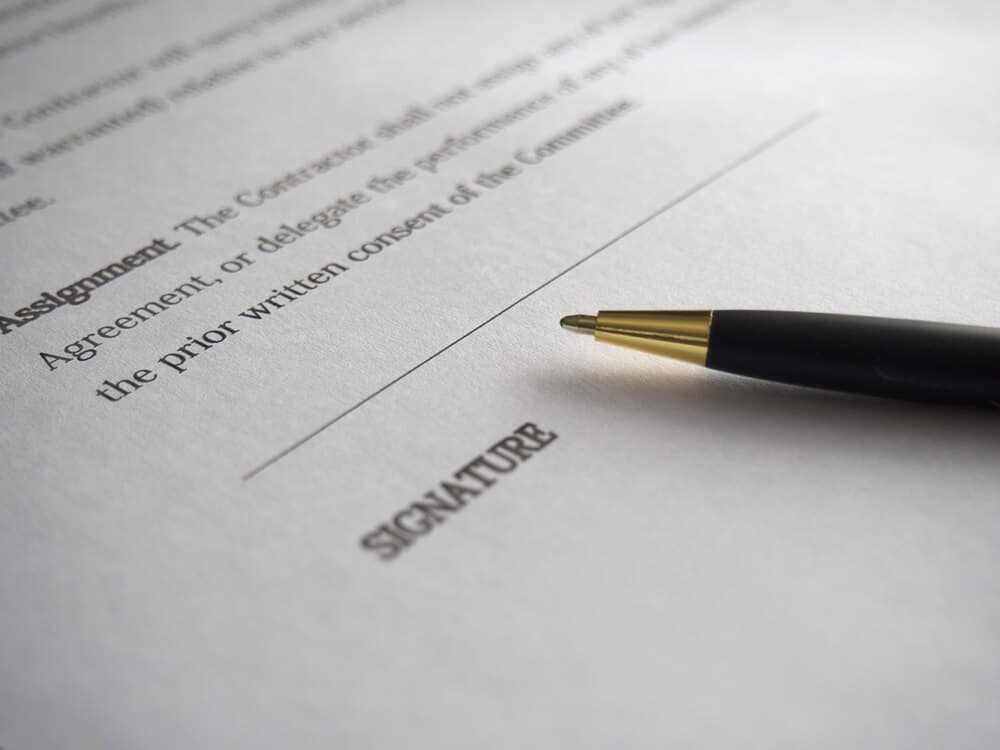What Is a Demand Letter Used for in a Personal Injury Claim?

If you’ve been injured in an accident and you believe negligence played a role, you may have grounds for a personal injury claim. The steps and components of an injury claim are complex, which is why it’s best to have an attorney by your side to ensure you maximize your chances of receiving the compensation you need to recover.
When you begin a claim, you’ll need a way to initiate contact with the at-fault party to inform them of your intent to seek compensation for your accident-related losses. This is done by sending a demand letter. Let’s take a look at what a demand letter is used for in personal injury claims and how it can make a significant impact on the results of a claim.
Elements of a Personal Injury Claim Demand Letter
A demand letter is a document that your attorney will send to the opposing party’s insurance company to let them know you are taking legal action against the defendant. A demand letter follows a standard order of progression, which includes informing the recipient of who you are, how you were injured, the damages you sustained, who should pay for those losses, and the amount of compensation you’re seeking.
A demand letter begins with a letter heading. The heading will have information about you, the defendant, the claim, and the overall reason for the demand letter. Then, the letter moves into the presentation of facts. This is where you discuss the event that led to your injuries in as much detail as possible. Your lawyer will likely approximate language to ensure the insurance cannot deny a claim for a discrepancy.
The next section involves describing the damages. This includes economic and noneconomic losses—like medical bills, lost wages, pain and suffering, and more. You’ll discuss how your life has been altered since the accident physically, financially, and emotionally. You’ll also have a section discussing liability. This is where you’ll use the evidence you have to show that your injuries were a result of the defendant’s negligence.
Finally, you can outline the specific amount of money you’re demanding for the damages. When you close a demand letter, it should be done so politely and include a time limit for when the insurance company should respond.
Writing an Effective Demand Letter
As your lawyer will tell you, including all the elements discussed above in your demand letter isn’t always enough to ensure you’ll receive compensation for your losses. As such, it’s important to understand how to write an effective demand letter.
- Thoroughly review the accident. While the at-fault party should know how and why the accident happened because of their responsibility, it’s likely they’ll present a different story than what’s in your demand letter. That’s why it’s important to clearly detail what you believe happened from start to finish and back up those beliefs with concrete evidence.
- Be polite. While it’s understandable to be frustrated or angry when you’re injured because of someone’s negligence, it’s important to refrain from expressing those emotions in your demand letter. You want the insurance company to be able to analyze the demand letter in a business-like manner.
- Ask for a specific resolution. It’s important to be specific with your resolution request. This means stating exactly how much money you’re looking to recover and by when. Having a deadline in place encourages the insurance company to act quickly.
- Threaten the alternative of court. While the majority of personal claims are settled through negotiations, it’s important for the insurance company to understand that you and your lawyer will not hesitate to take the matter to court to ensure you receive proper compensation.
What to Expect After You Send a Demand Letter
After you’ve submitted your demand letter, there are a number of situations that could evolve. If the demand letter is accepted, you’ll proceed to settlement and receive the compensation you requested. This will likely also entail signing a release of liability, which means you’ll be unable to take additional legal action in the future.
In some situations, the insurance company could make a counter-offer. If that’s the case, you and your personal injury lawyer will need to decide if you will agree to the terms, re-negotiate, or file a lawsuit. If you decide to file a lawsuit or the claim is denied outright, you’ll proceed to court to receive an official verdict.
Get Help With Your Demand Letter From Pittman Roberts & Welsh, PLLC
To ensure the insurance company and defendant knows you are serious about receiving full and fair compensation, your demand letter will need to be strong. As personal injury attorneys, we have extensive experience composing demand letters for a variety of cases—including car accidents, medical malpractice, premises liability, and more.
When you work with Pittman Roberts & Welsh, PLLC, you won’t have to worry about drafting a demand letter. We will compile the evidence, documents, and information needed for the letter and ensure it is crafted in such a way that proves you were wronged and are owed compensation. Contact us today to learn more.







